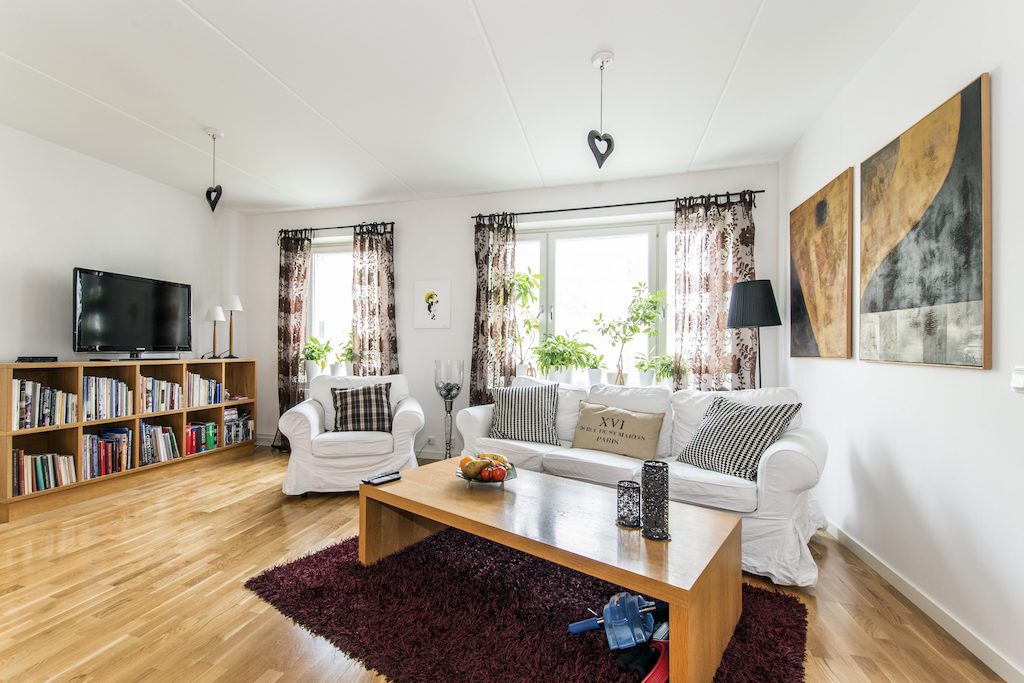Airbnb Growth Story Has a Plot Twist — A Saturation Point

Skift Take
Has Airbnb reached peak Airbnb in the U.S. and Europe? A new report from Morgan Stanley seems to suggest as much.
In the company's third annual AlphaWise survey of more than 4,000 adult consumers in the U.S., UK, France, and Germany, it found that Airbnb adoption in the U.S. and Europe is slowing, providing an opportunity for online travel agency competitors such as Priceline (Booking.com) and Expedia to grab some share.
The percentage of travelers who used Airbnb during the 12 months up to October 2017 increased to 25 percent, up 330 basis points. By contrast, in last year's survey, that increase was up 800 basis points.
Awareness of Airbnb is at an all-time high, the report argues. Morgan Stanley's analysts suggested two reasons for the slowing usage rates. One is that Airbnb may simply be too big, or that it's become so mainstream that it's harder for the company to grow as it used to. The survey noted an 80 percent awareness among travelers. In 2016, awareness levels were 72 percent.
But if awareness of Airbnb is so high, why aren't more U.S. and European travelers using it even more than before? That's a bigger challenge for Airbnb to consider: Have alternative accommodations gotten too mainstream? Or is it still too niche for the market overall?
More travelers are citing privacy and security as reasons why they may not stay in an Airbnb. Another reason for the slowing adoption rate, analysts suggested, may have to do with the fact that privacy and safety "are material and growing barriers to adoption." More respondents in 2017, 14 percent more than in 2016, cited privacy and safety factors as reasons why they did not use Airbnb in the past 12 months.
Because of slower adoption rates for Airbnb in the U.S. and Europe, Morgan Stanley lowered its expectations for its forward user/room night forecast to 12 percent versus 29 percent in 2016. The company also expects Airbnb to grow to 6 percent of lodging demand across these regions by 2020, compared to 9 percent as was estimated last year.
Overall, Morgan Stanley expects Airbnb will generate approximately 155 million room nights in 2018 in the U.S. and Europe, an increase of 14 percent over 2017.
What It means
Morgan Stanley's report had some good news for the hotel industry — and even better news for online travel agencies like Booking.com and Expedia.
Because adoption of Airbnb in the U.S. and Europe is slowing, analysts believe "Airbnb is less of a threat to hotels" — but it's still a threat.
The survey showed that 51 percent of Airbnb users replaced stays at traditional hotels with an Airbnb stay, up 160 basis points from 49 percent in 2016. This number is expected to grow to 54 percent in the next 12 months. Morgan Stanley also noted that the replacement of extended stay hotels grew 600 basis points to 32 percent in 2017, after dropping 300 basis points from 2015 to 2016. That seems to suggest that extended stay hotels are losing out on market share to Airbnb.
Airbnb's impact on hotels' ability to have more pricing power during compression nights, or high-demand periods, is still a relevant factor, too, Morgan Stanley noted. It also doesn't help that many major U.S. markets, such as New York, are seeing a big increase in hotel supply.
The analysts went on to say that they "estimate that Airbnb had a 50 bps impact to 2017 RevPAR [revenue per available room] growth across US/Europe, down from our prior estimate of 90 bps. We now forecast it will have another 50 bps impact on 2018 RevPAR growth, down from our prior 80 bps impact."
Because of this, Morgan Stanley believes hotel RevPAR growth in the U.S. and Europe will be "relatively stable" at an increase of 2.3 percent in 2018 and an increase of 1.6 percent in 2019.
The analysts also said that all signs point to an opportunity for the online travel agencies, such as Priceline and Expedia. This is a view already expressed by some hotel industry executives — namely that Airbnb should be more concerned with competing with the online travel agencies than competing with hotels.
Morgan Stanley noted that usage of online travel agencies is still rising and that these sites and Airbnb are the only two accommodations booking channels that are up year over year.
"This speaks to the resiliency/strength of the OTA model and consumer value proposition," the analysts wrote. "If anything, we see the OTAs' strong use trends, paid search/traffic acquisition expertise and improving inventory offerings (more alternative accommodations) becoming a growing threat to Airbnb, as the OTAs, in our view, are better positioned to act as the online travel one-stop shop."
Online travel giants like Booking.com and Expedia (through HomeAway) already offer both hotels and alternative accommodations as part of their inventory, and they spend a lot to make sure consumers come to their sites. The major online travel agencies are expected to spend approximately $9 billion in 2017 on paid search and marketing.
Some industry observers have also noted that Airbnb itself is increasingly coming to resemble an online travel agency, especially as the company diversifies its product offerings to include tours and activities, restaurant reservations, and more.
During Hilton's second quarter earnings, CEO Chris Nassetta shared this interesting perspective on Airbnb and the rise of homesharing and vacation rentals. He believes that the more competition there is from the likes of platforms such as HomeAway and Airbnb, that it could likely translate to lower distribution charges from online travel agencies like Booking.com or Expedia — and therefore benefiting the hotel industry.
"Competition is a good thing," Nassetta said. He reiterated his belief that Airbnb and its peers "are not directly competitive" with hotels and that they cater to "different travel or trip occasions." He noted that as Airbnb transforms itself into becoming more like an online travel agency "the more competition there is in any space, the better off we are. More competition, in theory, would have the effect of driving prices down and driving distribution costs down. As the competitive environment heats up, I think the net result is good."
One way for Airbnb to better compete with the online travel agencies, however, may be to increase the number of hotels that are listed on its platform, the analysts suggested.
On August 10, Airbnb CEO Brian Chesky tweeted that the company had more than 15,000 boutique hotels on Airbnb since allowing them to use the site beginning in November 2016.
The Future of Airbnb As It Pursues That IPO
As homesharing becomes more mainstream and more people are aware of businesses like Airbnb, Airbnb will need to ensure that it has more than enough supply to meet demand and give the company a competitive edge. In addition to reaching out to traditional hotels, the company is also actively looking to the luxury and traditional vacation rental markets.
And as the company pursues its path toward an eventual IPO, no doubt the company will do all it can to tout its strengths. That includes news reports that the company has been profitable for the past 17 months, taking in $1 billion revenue in the third quarter.
But, as Skift noted earlier this year, Airbnb is trying to become a “super brand of travel,” or a new breed of online travel agency. Whether it succeeds, however, will depend largely on its ability to keep growing. The Morgan Stanley report calls into question some of that growth story.




